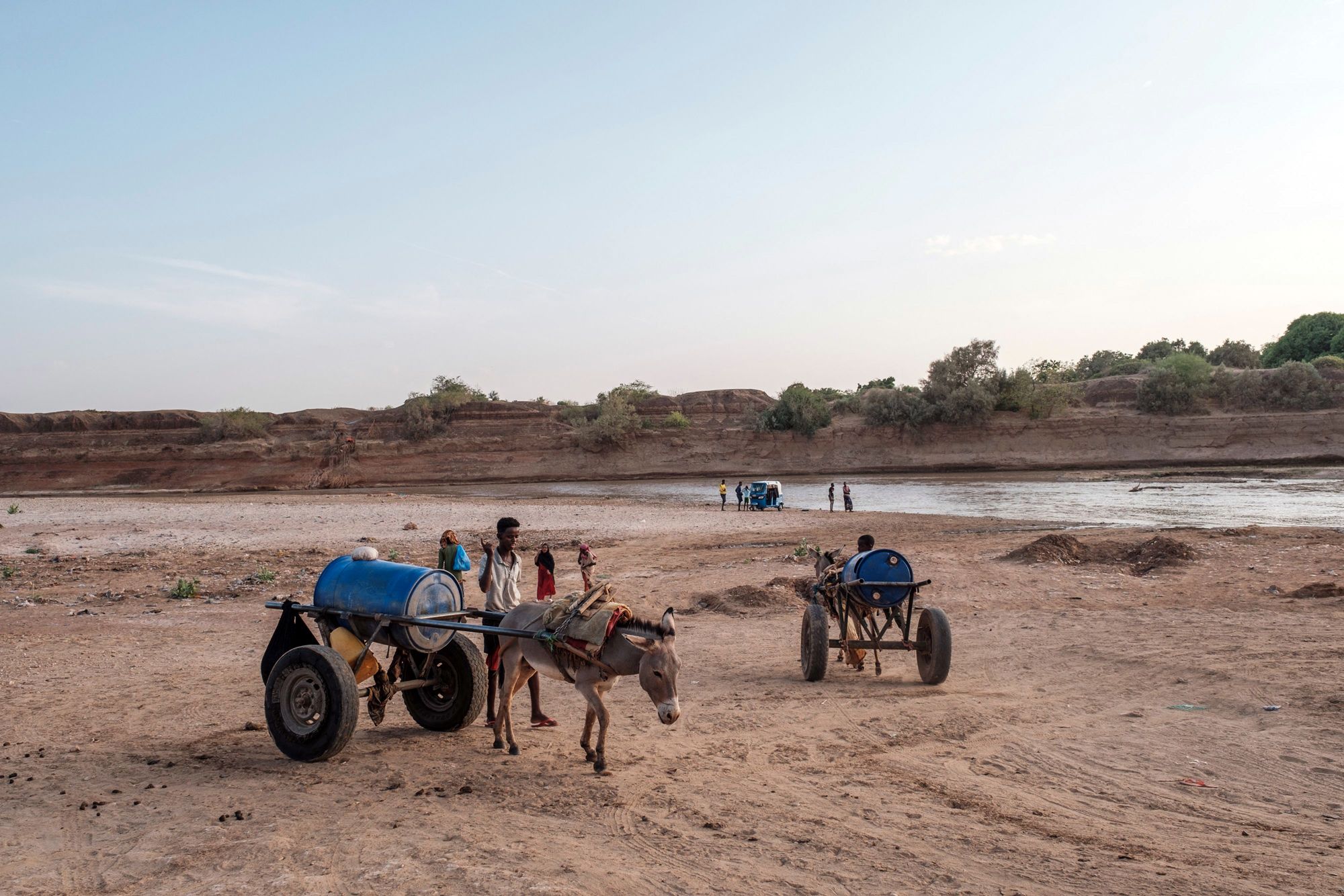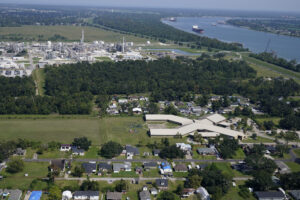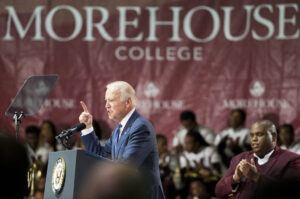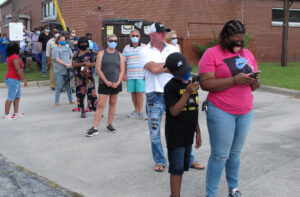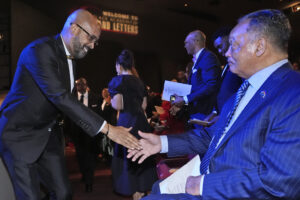(Bloomberg) –When Senegalese President Macky Sall convened an Africa Climate Adaptation Summit in Rotterdam last month, the idea was to bring together countries that need help adapting to a warming planet with industrialized nations whose emissions are to blame. Only the African leaders showed up.
The sole officials to attend from rich nations, which have prospered for nearly two centuries at the Earth’s expense, were Chrysoula Zacharopoulou, the French development minister, and Frans Timmermans, the European Commission climate chief. Even Mark Rutte, prime minister of the Netherlands, the country hosting the meeting, only made it for the photo op.
Backed by the United Nations, the Rotterdam gathering was meant to prepare the ground for the latest round of international climate talks, known as COP27, taking place in Egypt next month. Hosted by an African country, this year’s negotiations are set to focus on demands by developing nations — who contributed little to historical emissions of planet-warming gases — for financing to help them cope with worsening storms, droughts and floods.
If the leadup is anything to go by, however, it’s the widening chasm in policy approach that’s likely to be on display.
“Macky Sall invited all of his western counterparts. They didn’t come to that party,” said Patrick Verkooijen, chief executive officer of the Netherlands-based Global Center on Adaptation, an international organization focused on brokering climate solutions. “COP27 will be a train wreck if the adaptation finance doesn’t come through.”
The unprecedented heatwaves that swept the planet this year, along with melting glaciers and worsening floods and storms have added weight to demands for reparations from developing countries. Though an agreement is unlikely to be reached, the contentious issue of forcing rich nations to compensate poorer ones for economic losses caused by global warming will, for the first time, likely be on the formal agenda of COP27.
Adaptation financing is less controversial — it’s focused more on helping poorer countries protect their infrastructure and people from a changing climate. The idea is the more you invest in mitigation and adaptation, the less loss and damage there’ll be in the first place. Yet Africa, which is perhaps in more dire need than anywhere else, is getting neither.
The continent is the world’s least developed and produces just 4% of global greenhouse gas emissions but it’s due to suffer some of the worst consequences of increasingly extreme weather.
Nigeria and Chad are currently subsumed by floods that have killed hundreds of people, but the disasters have barely made headlines while the ensuing disruption of gas exports to Europe has dominated coverage. The Horn of Africa is in the midst of its worst drought in 40 years, threatening millions of vulnerable people with hunger. Madagascar and Mozambique have been hit by a series of cyclones and more than 400 people died when torrential rains drenched the South African city of Durban.
Unlike Europe and the US, African nations have few resources to protect against or cope with such calamities.
Read More:
Climate Change Caused Floods That Killed 435 in South Africa
Nigeria LNG Declares Force Majeure After Flooding
Drought Ravaging East Africa Bankrupts Farmers, Empties Schools
Climate Change Made Deadly African Cyclones More Severe
Verkooijen’s organization, together with the African Development Bank, has developed the Africa Adaptation Acceleration Program, in a bid to win $25 billion in finance for programs that would help buttress the continent by building stronger roads and bridges and bulwarks against rising seas. Money would also be spent on establishing irrigation systems and weather forecasting facilities to help farmers cope with more frequent droughts.
Even that $25 billion — which African nations are struggling to secure — is a fraction of what’s needed. Governments regularly submit to the UN updated Nationally Developed Contributions, showing what they want to do to fight climate change. Taken together, the NDCs of 51 African nations show a need for $579 billion in investment in adaptation projects through 2030, according to the Global Center on Adaptation. The continent received an annual average of $11.4 billion in adaptation finance between 2011 and 2020, it said.
All that falls far short of the $100 billion a year that rich countries pledged to put toward financing climate adaptation and clean energy in poorer countries in the decade to 2020. The target, since extended, has never been met. And what financing has been made available has mostly gone toward mitigation projects, such as the construction of renewable energy plants, important but perhaps not the top priority given the continent’s miniscule contribution to global carbon emissions.
While undertakings were made at last year’s COP26 in Glasgow to double adaptation finance to $40 billion a year to 2025, the world economy has since been blown off course by Russia’s invasion of Ukraine, which upended global energy and grain markets and shifted attention away from climate.
Not only has the promised financing not come through, but European nations reliant on Russia for gas have recommissioned coal-fired and nuclear plants to avoid a winter energy crunch and, along with the US, pressured oil-producing allies to increase supplies.
Those developments cut to the heart of African frustrations with international climate policies; while failing to fulfill their own commitments on financing and emissions targets, the world’s richest nations are pressuring African countries not to develop their natural resources to conserve natural habitats and avoid future warming.
The divisions are most stark over the Congo Basin, home to the world’s second largest rainforest forest and a submerged area of peatland that stores carbon equivalent to three years of global emissions.
In June, the Democratic Republic of Congo announced plans to open up vast tracts for oil and gas exploration, endangering a $500 million forest protection agreement and drawing criticism from John Kerry, the US special presidential envoy for climate, who urged it to halt bidding on blocks in the most sensitive areas. Congo’s president, Felix Tshisekedi, took to the podium at last month’s General Assembly of the United Nations, to dismiss that pressure, adding his voice to African leaders telling the world’s most polluting countries to clean up their own acts before they ask Africans to forego much-needed development for the greater good.
Read: Congo’s President Rejects US Call to Halt Oil Bids in Peatlands
“Africa, the continent that pollutes the least and lags furthest behind in the industrialization process, should exploit its available resources to provide basic energy,” Sall said at the UN. “More than 600 million Africans still live without electricity.”
Senegal, Mozambique and Tanzania are forging ahead with plans to develop offshore gas deposits; Nigeria has rekindled talks about a trans-Sahara pipeline; Italy is courting Algeria to secure gas shipments; and Namibia and Uganda are also developing oil finds.
South African Energy Minister Gwede Mantashe is not just pushing ahead with plans for TotalEnergies SE to develop gas deposits off the country’s coasts, he’s cautioning against the closure of coal-fired power plants under one of the few concrete climate financing deals to emerge at Glasgow’s meeting.
Complicating the debate is the fact that, in many African countries, poor governance means oil riches haven’t translated into much development and donors are hesitant to hand over climate support unless they know where it’s going.
While African nations understand the danger of fossil fuels, Mantashe said at a conference in Cape Town this month, “hunger will kill us faster.”
–With assistance from Cagan Koc, Natasha White and Katarina Hoije.
To contact the author of this story:
Antony Sguazzin in Johannesburg at asguazzin@bloomberg.net

